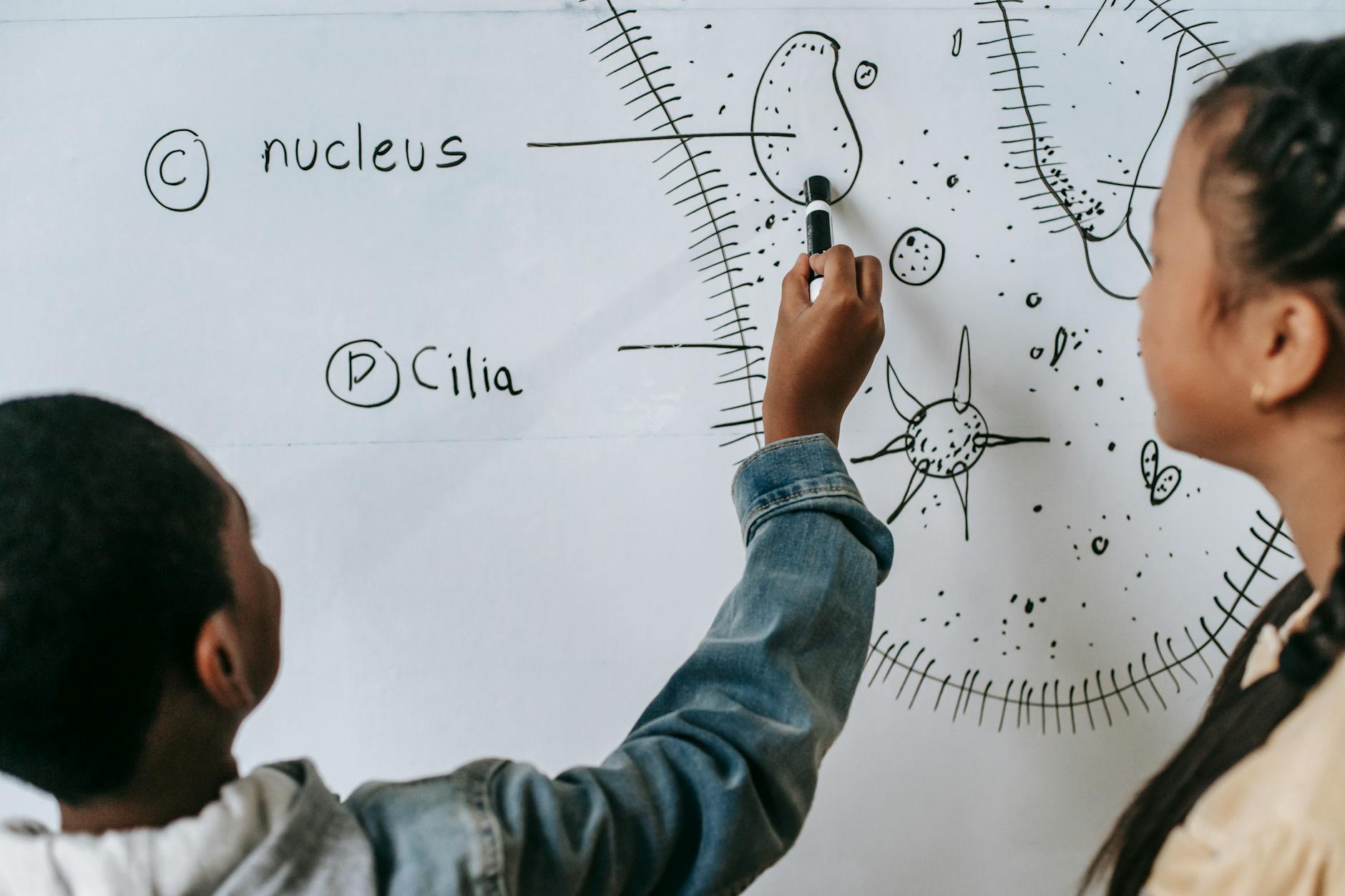How to Enhance Your Community Impact in Australia Through Education

Assessing Community Needs
Understanding the fabric of our community starts with a clear assessment of its needs. One way we can do this is by recognising the importance of early childhood education. This foundation not only nurtures young minds but sets the groundwork for a more informed, empathetic society. From the bustling streets around the State Library of Victoria, I've observed that community feedback is invaluable. Residents often express growing concerns around access to quality education and childcare facilities. This feedback isn't just conversation—it’s data we can act upon.
Identifying Key Challenges
Every community faces unique challenges, and recognising them is crucial for targeted action. For many in Melbourne, navigating the balance between accessible childcare and effective learning opportunities remains a pressing issue. The demand for childcare courses online is on the rise, reflecting a need for flexible educational resources that can adapt to our fast-paced lives. Our goal is to identify these gaps and address them with purpose.
Gathering Community Feedback
Feedback forms the backbone of any impactful initiative. Engaging with locals through surveys, interviews, and discussion forums can provide a wealth of insight that might otherwise go unnoticed. For example, regular sessions here at the State Library of Victoria serve as a platform where community voices shape our understanding of local issues, from education to child welfare.
Prioritizing Areas for Impact
Once we've gathered comprehensive insights, the next step is to prioritise our efforts effectively. It's important to focus on areas that promise the greatest impact. Addressing concerns through well-developed community services courses can empower individuals within the community, providing them with the knowledge and skills necessary to drive lasting change.
Engagement and education are key to creating a society where everyone feels supported, and this journey can begin right in our own neighbourhoods.
Designing Educational Programs
Tailoring to Local Contexts
In Melbourne, crafting educational programs that address the unique social challenges requires an intimate understanding of the community's pulse. A comprehensive approach starts by integrating local knowledge, much like how resources at the State Library of Victoria serve as a hub for community learning. When tailored appropriately, courses like child care courses can provide essential skills to nurture children in underprivileged areas, addressing pressing local needs.
Engaging Diverse Stakeholders
Creating impactful educational programs necessitates collaboration with a myriad of stakeholders. It's crucial to involve voices from every corner—from local government agencies to community leaders and residents. Engaging with key figures ensures that programs remain relevant and effective. Mobilising community feedback, much like how activities at Queen Victoria Market gather local insights, provides a grassroots perspective that enriches the educational content.
Ensuring Accessibility and Inclusivity
Accessibility is paramount in educational initiatives. Programs must cater to varying abilities and backgrounds to foster inclusivity. Offering a diploma of community services is a practical example, equipping individuals from different walks of life with tools to tackle community issues. Consideration of diverse learning environments ensures that everyone has a chance to contribute positively. Adopting flexible delivery methods—like online and weekend classes—accommodates those with demanding schedules, empowering Melbourne's citizens to pursue further education without compromising their day-to-day responsibilities.
Implementing Effective Strategies
Partnering with Local Organizations
Strengthening community initiatives in Melbourne requires collaboration with experienced entities. Partner with local organisations that have a proven track record, especially those based near community resource hubs like the State Library of Victoria. These strategic partnerships can assist you in reaching diverse populations effectively. They also provide opportunities for sharing resources and knowledge, crucial for cert 3 childcare and other community support endeavours. Engaging with local partners ensures that your efforts are informed by those who understand the community dynamics and challenges firsthand.
Leveraging Online Platforms
Harnessing the power of online platforms can significantly elevate community service initiatives. Especially in a city like Melbourne, with its vibrant arts and community-driven culture, these platforms offer a way to connect and disseminate information. Whether it's using social media to spread awareness about local outreach programs at the Queen Victoria Market or deploying digital tools for training programs like cert 3 in individual support, online platforms are invaluable. They allow flexibility and accessibility, crucial in a geographically dispersed urban environment like Melbourne.
Integrating Practical Applications
For initiatives to resonate with the community, they should reflect real-world application. Collaborate with supportive arts communities in areas like St Kilda to lead workshops or community events that emphasize experiential learning. Programs should move beyond theory, emphasizing hands-on experience. Whether through project-based learning or interactive workshops, integrating practical applications empowers participants to apply new skills and knowledge directly, creating a ripple effect throughout the community. This approach is key to fostering sustainable development and driving meaningful social change.
Measuring Impact and Outcomes
Setting Clear Objectives
In the world of community service, setting clear objectives is essential for creating meaningful and measurable change. Imagine how transformative it is to initiate impactful projects by identifying precise goals. It's like drawing a roadmap to success that not only aligns with your diploma in early childhood education but also paves the way for sustainable community advancements.
Utilizing Evaluation Tools
Once objectives are set, employing comprehensive evaluation tools becomes crucial. These tools provide invaluable insights, helping to gauge the effectiveness of initiatives and refine approaches for better results. Consider the value in applying sophisticated methodologies such as surveys, focus groups, and performance metrics. These methods can parallel the rigorous assessments found in aged care training, providing a structured approach to evaluating progress.
Sharing Success Stories
Lastly, never underestimate the power of storytelling. Sharing success stories within the community can be incredibly empowering. It fosters a culture of achievement and inspires others to contribute positively. While St Kilda’s supportive arts communities often showcase transformative narratives, broadcasting tales of triumph through various media cultivates broader engagement and ignites collective action.
This approach ensures that every step taken leaves a lasting imprint, fostering ongoing commitment to social justice and community empowerment.
Overcoming Community Challenges
Navigating Funding Limitations
Navigating the rocky waters of funding is a cornerstone issue for those striving to enhance community impact. The path forward involves creative strategies that marry resourcefulness with social commitment. Consider forming alliances with local businesses or community 'rally points' such as the Queen Victoria Market. They're not only places to shop but also spaces where we can mobilise outreach programs with sponsors who share our vision. Furthermore, don't forget the online world; platforms designed for crowdfunding have the potential to breathe life into your initiatives even if fast short term loans seem tempting at first glance.
Juggling Work and Learning Responsibly
Balancing the demands of work and the thirst for knowledge isn't easy, but it's possible with a strategic approach. Begin by seeking flexible learning opportunities. The State Library of Victoria is an underutilised treasure trove, offering various resources suitable for self-paced education. Social justice warriors know that lifelong learning inspires community transformation. We must also advocate for reasonable policies around work-study arrangements within our networks, ensuring that both learning and livelihood coexist harmoniously.
Embracing the Unpredictable: Adaptive Strategies
In our quest for social justice, adaptability becomes a crucial ally. The needs of our communities are ever-evolving, urging us to remain vigilant and responsive. Establish a dynamic feedback loop with local institutions like the supportive arts communities in St Kilda. This can significantly assist in keeping your finger on the pulse of local needs and refining your strategies accordingly. Addressing issues such as why support worker training and ongoing review must remain at the forefront of community projects, influencing our adaptability to sustain impactful change.
Admittedly, we face challenges. However, by embracing creative solutions, learning flexibly, and remaining adaptable, we can foster substantive change that echoes throughout Melbourne and beyond.


